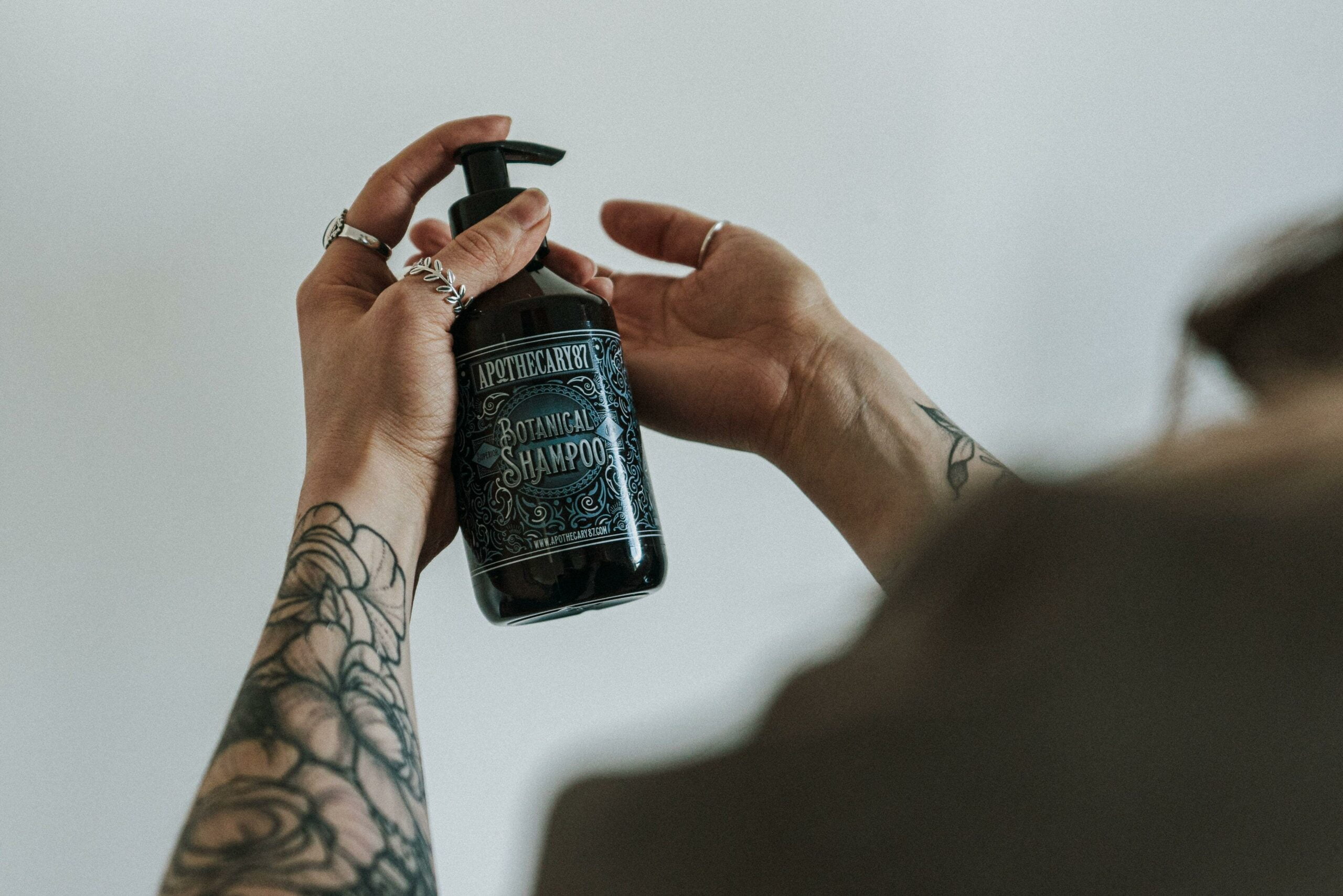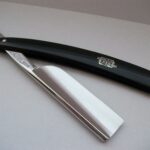Embark on a journey through time as we delve into the captivating world of barber surgeons, where the boundaries between medical expertise and grooming skills intertwine. Prepare to be both intrigued and amazed by the fascinating history of these skilled healthcare professionals who seamlessly blended the art of healing with the art of grooming. From bloodletting to wound treatment, their techniques were as diverse as the historical context and traditions that shaped their profession. Join me as we unveil the remarkable contributions of barber surgeons to healthcare throughout history, shedding light on their captivating and often underappreciated role. Welcome to the spellbinding realm of the barber surgeon.

Barber Surgeon
Barber surgeons, an intriguing blend of medical expertise and grooming skills, played an essential role in healthcare throughout history. These skilled professionals were proficient in a range of techniques, including bloodletting, wound treatment, and minor surgical procedures. As a passionate healthcare professional with a deep knowledge of history and expertise in barber surgery, I am fascinated by the significant contributions of barber surgeons and the historical context surrounding their practices. In this article, we will explore the captivating world of barber surgeons, shedding light on their expertise and uncovering the unique traditions that shaped their profession.
The Birth of Barber Surgeons: A Unique Blend of Medical and Grooming Practices
In bygone eras, medical and grooming practices were intricately interconnected. The term “barber surgeon” originated from the union of two distinct occupations: barbers, skilled in hair cutting and shaving, and surgeons, specializing in medical procedures. This merging of professions led to the development of a new class of healthcare providers known as barber surgeons. These individuals possessed both the medical knowledge required for surgical procedures and the grooming skills necessary to maintain personal hygiene.
Expertise in Medical Procedures
Barber surgeons were proficient in a wide range of medical procedures, making them valuable members of their communities. Their expertise extended beyond grooming to encompass various medical practices. The mastery of bloodletting, for example, was one of the crucial skills barber surgeons possessed. This practice involved deliberately extracting blood from a patient’s body to restore balance and treat various ailments. With their deep understanding of the body’s humoral system, barber surgeons knew how to perform bloodletting safely and effectively.
Wound Treatment and Minor Surgical Procedures
In addition to bloodletting, barber surgeons excelled in wound treatment and minor surgical interventions. These skilled professionals provided essential healthcare services to individuals in need. Whether it was stitching wounds, removing superficial tumors, or setting broken bones, the expertise of barber surgeons was often called upon. Their competent hands and knowledge of anatomy allowed them to offer immediate care and comfort to those who required medical attention.
The Historical Context and Traditions
To truly appreciate the role of barber surgeons, it is crucial to understand the historical context and traditions that shaped their profession. Barber surgery originated in the medieval period and flourished until the 18th century. During this time, barber surgeons were not only skilled practitioners but also deeply ingrained in the socio-cultural fabric of their communities. They were responsible for both medical treatments and maintaining personal grooming standards. This multifaceted role bestowed barber surgeons with a position of respect and trust.
Unveiling the Contributions of Barber Surgeons: A Unique Perspective
As we delve into the intriguing history of barber surgeons, it becomes clear that their contributions to healthcare are significant and far-reaching. Their expertise in medical procedures, wound treatment, and minor surgeries provided crucial healthcare services to communities in eras where access to modern medical facilities was limited. Moreover, the traditions surrounding barber surgeons and their integrative approach to medical and grooming practices highlight the resilience and adaptability of healthcare throughout history.
In conclusion, barber surgeons, with their blend of medical expertise and grooming skills, have left an indelible mark on the healthcare landscape. Their contributions, rooted in historical context and traditions, enrich our understanding of the intricacies of healthcare practices in bygone eras. Through their fascinating journey, we witness the evolution of medical knowledge and the enduring spirit of those dedicated to the well-being of others.
“The intriguing history of barber surgeons unveils a captivating blend of medical expertise and grooming skills, showcasing the significant contributions they made to healthcare throughout history.”
Barbering is a fascinating profession that dates back centuries. Did you know that barbers were not only responsible for cutting hair, but also for performing surgeries and dentistry in the past? If you’re interested in learning more intriguing facts about barbering, click here.
Barber Surgeon is a fascinating profession that combines the art of barbering with the skill of surgery. If you’re curious about the historical background of this unique profession, check out some Barber Surgeon facts. By clicking on this barber surgeon facts link, you’ll uncover intriguing details about their practices throughout history.
While exploring the world of Barber Surgeons, it’s also essential to delve into the captivating Barber Surgeon history. Discover how this profession evolved over time and the significant contributions they made to medical advancements. Click on this barber surgeon history link to delve deeper into their remarkable journey.
In addition to their historical significance, Barber Surgeons were known for their innovative techniques. Uncover the secrets behind their extraordinary skills by clicking on this barber surgeon techniques link. You’ll be amazed at the level of expertise and expertise these individuals possessed.
As you immerse yourself in the intriguing world of Barber Surgeons, let their captivating history and techniques spark your curiosity. By exploring the barber surgeon facts, history, and techniques, you’ll gain a newfound appreciation for this one-of-a-kind profession. So, don’t wait any longer – click on the links above and embark on an unforgettable journey through time.
The Barber-Surgeon: A Multifaceted Medieval Profession
[youtube v=”v0Vs73csPKg”]
Overview
In the realm of medieval professions, the barber-surgeon held a unique and diverse role. Combining the skills of both a barber and a surgeon, these professionals were proficient in a wide range of medical procedures and personal grooming practices. From bloodlettings and wound treatments to haircuts and shaves, barber surgeons played an indispensable role in their communities, catering to the healthcare needs of both the wounded and the everyday individual. This article explores the fascinating history and contributions of the medieval barber-surgeon.
The Origins and Evolution of the Barber-Surgeon
The ancient roots of barbering can be traced back to the Roman times, where the term “tonsor” designated a professional barber. However, it was during the Middle Ages that the term “barber surgeon” came into prominence. While barbers mainly focused on cutting hair and facial grooming, the barber surgeons took on additional responsibilities, including performing surgeries, bloodlettings, and dentistry. They were essentially a combination of a modern-day barber, surgeon, and dentist.
The Prowess of the Barber Surgeon
One of the intriguing aspects of the medieval barber surgeon’s role was their endeavors in dental treatments. Though they couldn’t provide fillings, they had unique remedies for toothaches. Believing in tooth worms that resided in the teeth, they devised a method to eradicate these worms using a heated needle inserted into a metal tube placed over the cavity. Although tooth worms were merely a myth, this treatment successfully alleviated toothache by killing the nerve cells.
In addition to dentistry, barber surgeons also implemented unconventional treatments for chronic headaches. Trepanning, the practice of creating a burr hole in the skull, was a common procedure used to alleviate such ailments. Using a specialized drill or a hash tag-shaped incision, barber surgeons gained a glimpse of the brain’s condition. While these procedures were risky, with chances of brain damage and infection, remarkable evidence indicates that around 40% of patients survived and lived for an extended period.
The Status and Evolution of the Barber-Surgeon
During the Middle Ages, physicians often distanced themselves from the practice of surgery, relying more on observation and advice. This created an opportunity for barbers to step into the realm of medical procedures. In Italy, barbers were trained by medical schools and gained recognition as competent surgeons. In England, barbers merged with the fellowship of surgeons in the 16th century to form the company of barber surgeons. However, with the advancement of medical knowledge, the profession faced restrictions, and by the mid-1500s, barbers in England were banned from performing surgical procedures.
The Legacy of the Barber-Surgeon
The profession of the barber-surgeon flourished in times when access to modern medical facilities was scarce, leaving an indelible mark on the healthcare landscape. The tradition of the barber pole, illustrated by its red and white stripes symbolizing blood and bandages, continues to be observed today. Additionally, in the UK, a unique distinction is made between surgeons and doctors, with surgeons often referred to as “Mr.” rather than “Doctor,” reflecting the historical origins of their profession.
Through the ages, the adaptability and resilience of healthcare have been epitomized by the barber-surgeon. Their multifaceted skills, ranging from surgical procedures to personal grooming, highlight their significance in communities and the valuable contributions they made to healthcare.
As we reflect on the history of the barber-surgeon, their practices and traditions serve as a reminder of the breadth of human ingenuity in the face of limited medical resources. The lessons learned from their experiences enrich our understanding of historical healthcare practices and pave the way for modern advancements in medical science.
“The tradition of the barber-surgeon, with its unique blend of medical practices and personal care, showcases the remarkable adaptability and resilience of healthcare throughout history.”
FAQ
Question 1: What is a barber surgeon?
Answer: A barber surgeon is a healthcare professional who possesses both medical and grooming skills. They were prominent in bygone eras and were responsible for performing minor surgical procedures, bloodletting, and wound treatment.
Question 2: What were the main duties of barber surgeons?
Answer: Barber surgeons had a broad range of responsibilities. Their main duties included performing surgeries, such as amputations, tooth extractions, and bloodletting. They also provided grooming services like shaving, haircuts, and dentistry.
Question 3: How did barber surgeons acquire their medical knowledge?
Answer: Barber surgeons typically gained their medical knowledge through apprenticeships under experienced practitioners. They learned practical skills and techniques, such as wound treatment and surgical procedures, through hands-on training.
Question 4: What was the historical context surrounding barber surgeons?
Answer: Barber surgeons emerged during the Middle Ages when the medical profession was not as formalized as it is today. Due to the scarcity of trained physicians, barbers often assumed the role of healthcare providers and performed surgical tasks in addition to their grooming services.
Question 5: What contributions did barber surgeons make to healthcare throughout history?
Answer: Barber surgeons played a vital role in healthcare throughout history. They provided accessible medical care, particularly in rural areas where trained physicians were scarce. Their contributions included wound treatment, bloodletting for balancing humors, and performing minor surgeries, thereby improving the overall well-being of the communities they served.
- Unlock Water’s Symbolism: A Cross-Cultural Exploration - April 20, 2025
- Identify Black and White Snakes: Venomous or Harmless? - April 20, 2025
- Unlocking Potential: Origins High School’s NYC Story - April 20, 2025















